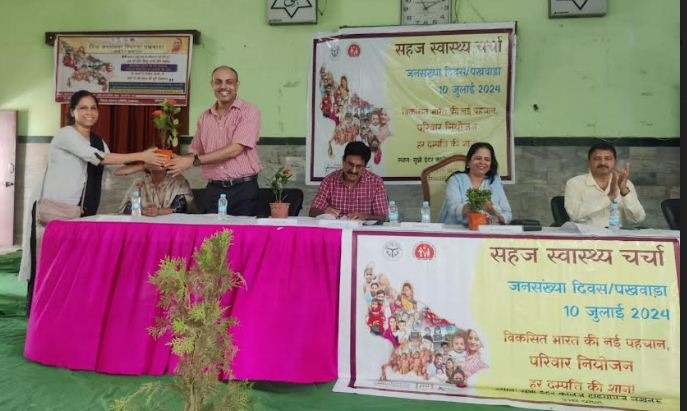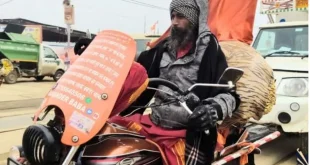
Lucknow, July 10 (HS). On the eve of World Population Day, more than 300 intermediate students of Sunni Inter College were motivated to become peer educators of the family welfare program. They were also motivated to share this information with their friends and society as peer educators. In this program, from government officials to social workers explained the importance of family planning to the students in an interesting way.
World Population Day is on Thursday. This year's theme is- 'Developed India's new identity, family planning is the pride of every couple'. Keeping this theme in mind, an orientation program was held for more than 300 intermediate students of Sunni Inter College on Wednesday under the guidance of National Health Mission and Health and Family Welfare Department in collaboration with UPTSU, Center for Advocacy and Research and PSI. The collaborating organization PSI conducted several activities with the students to create awareness about child marriage, teenage pregnancy and physical and mental health.
Joint Director Family Welfare Department Dr. Uday Pratap Singh discussed in detail the challenges faced during adolescence and emphasized the role of nutrition. He said that proper nutrition and family support are important to prevent health problems during adolescence. Teachers can guide children on nutrition in school. They can also visit adolescent health centers run by the Health Department to get necessary advice.
Dr. Suryanshu Ojha, General Manager of National Health Mission, said that it is important to involve adolescent children on this issue as they will lead the country in future. He emphasized on maintaining the balance of the ecosystem with planned population growth. He said that the government is trying its best to meet the needs of the entire population but given the limited resources, it becomes our responsibility to contribute to stabilizing population growth.
He said that about 11 percent of girls in India are married at an early age, which puts women at risk for teenage pregnancy, complications during delivery, premature delivery and heart problems. Maternal and neonatal complications can be prevented by educating children at the school level.
Social activist Dr. Naish Hasan interacted with the students. He said that due to reduction in poverty and better education and awareness, the total fertility rate in India has decreased generation after generation. Dr. Naish urged everyone not to target any particular community for family planning and discourage socio-cultural practices like child marriage on Akshaya Tritiya.
 look news india
look news india
